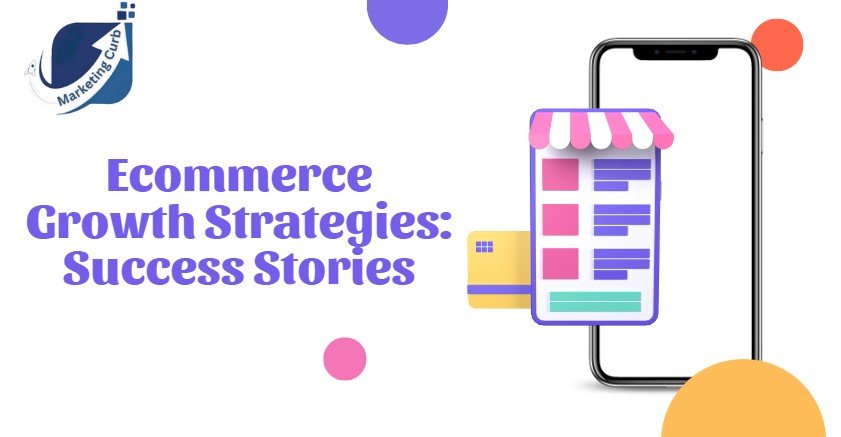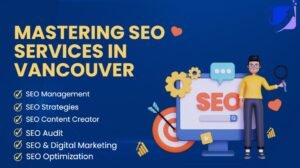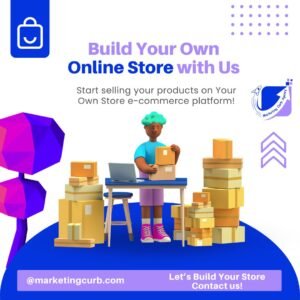Ecommerce has revolutionized the way we shop, transforming traditional retail into a dynamic, 24/7 online marketplace. For businesses looking to scale, understanding and implementing effective ecommerce growth strategies is crucial. In this comprehensive guide, we’ll explore actionable insights and proven tactics that can drive exponential growth for your ecommerce business. Whether you’re a budding entrepreneur or part of an established enterprise, these strategies, inspired by some of the fastest-growing ecommerce companies in the UK, will help you navigate the competitive online landscape.
The Importance of an E-commerce Growth Strategy
An ecommerce growth strategy is a detailed plan outlining how an online business will expand its market reach and increase its revenue. It involves a blend of marketing tactics, technological advancements, and operational improvements tailored to the unique needs of the business. A well-defined growth strategy can help businesses achieve:
- Increased Market Share: By identifying and targeting new customer segments.
- Higher Conversion Rates: Through optimized website performance and customer experiences.
- Improved Customer Retention: Via personalized marketing and loyalty programs.
- Revenue Growth: By diversifying product offerings and exploring new sales channels.
Understanding Your Market and Customers
Before diving into specific strategies, it’s essential to understand your market and customers thoroughly. This involves:
- Market Research: Analyze market trends, identify your competitors, and understand the demand for your products.
- Customer Segmentation: Divide your audience into distinct segments based on demographics, behavior, and purchasing patterns.
- Buyer Personas: Create detailed profiles of your ideal customers to tailor your marketing efforts effectively.
Ecommerce Growth Strategies for 2024 and Beyond
Here are some of the most effective ecommerce growth strategies that can propel your business to new heights:
- Leverage Data and Analytics
Data is the backbone of any successful ecommerce growth strategy. By leveraging analytics, you can gain valuable insights into customer behavior, sales trends, and marketing performance. Key metrics to track include:
- Website Traffic: Monitor the number of visitors and their behavior on your site.
- Conversion Rate: Measure the percentage of visitors who make a purchase.
- Customer Lifetime Value (CLV): Estimate the total revenue you can expect from a customer over their lifetime.
- Churn Rate: Track the rate at which customers stop purchasing from your business.
Tools like Google Analytics, Shopify Analytics, and other ecommerce platforms can help you gather and analyze this data effectively.
- Optimize Your Website for Conversions
Your website is the digital storefront of your ecommerce business. Ensuring it is optimized for conversions is crucial. Here are some tips:
- Improve Load Times: A fast-loading website enhances user experience and reduces bounce rates.
- Mobile Optimization: Ensure your website is mobile-friendly as a significant portion of ecommerce traffic comes from mobile devices.
- Clear Call-to-Actions (CTAs): Use prominent and compelling CTAs to guide users towards making a purchase.
- A/B Testing: Continuously test different elements of your website (e.g., headlines, images, CTAs) to find what works best.
- Enhance Customer Experience
Providing an exceptional customer experience can set you apart from competitors and foster loyalty. Focus on:
- Personalization: Use customer data to personalize product recommendations, emails, and offers.
- Easy Navigation: Simplify your website’s navigation to help users find what they’re looking for quickly.
- Customer Support: Offer multiple support channels (e.g., live chat, email, phone) and ensure timely responses.
- Returns and Refunds: Make your return and refund policies customer-friendly to build trust.
- Implement Effective SEO Practices
Search engine optimization (SEO) is a powerful tool to drive organic traffic to your website. Key SEO strategies include:
- Keyword Research: Identify relevant keywords that potential customers are searching for and incorporate them into your content.
- On-Page SEO: Optimize meta tags, headers, and content for target keywords.
- Technical SEO: Ensure your website is technically sound with proper indexing, mobile-friendliness, and fast load times.
- Content Marketing: Create high-quality, valuable content that addresses your audience’s needs and interests.
- Utilize Social Media Marketing
Social media platforms offer immense opportunities for ecommerce businesses to engage with their audience and drive sales. Strategies include:
- Influencer Partnerships: Collaborate with influencers who resonate with your target audience to promote your products.
- User-Generated Content: Encourage customers to share their experiences and showcase your products on social media.
- Paid Advertising: Utilize social media ads to target specific demographics and drive traffic to your website.
- Engaging Content: Share a mix of promotional and engaging content to keep your audience interested.
- Explore Multi-Channel Selling
Expanding your sales channels can significantly increase your reach and revenue. Consider:
- Marketplaces: Sell your products on popular marketplaces like Amazon, eBay, and Etsy.
- Social Commerce: Utilize platforms like Instagram Shopping and Facebook Marketplace.
- Retail Partnerships: Partner with brick-and-mortar stores to offer your products in physical locations.
- Subscription Models: Introduce subscription boxes or memberships for recurring revenue.
- Email Marketing Campaigns
Email marketing remains one of the most effective channels for ecommerce businesses. Focus on:
- Segmentation: Segment your email list based on customer behavior and preferences.
- Personalization: Use dynamic content to personalize emails for each recipient.
- Automation: Set up automated email workflows for abandoned carts, post-purchase follow-ups, and re-engagement.
- Value-Driven Content: Provide valuable content, such as product recommendations, discounts, and exclusive offers.
- Leverage Paid Advertising
Paid advertising can give your ecommerce business an immediate boost. Key strategies include:
- Google Ads: Use Google Shopping and search ads to reach potential customers actively searching for products.
- Retargeting Ads: Target users who have previously visited your website but did not make a purchase.
- Social Media Ads: Run targeted ads on platforms like Facebook, Instagram, and LinkedIn.
- Display Ads: Utilize display networks to reach a broader audience across various websites.
- Invest in Customer Loyalty Programs
Loyal customers are more likely to make repeat purchases and advocate for your brand. Implementing a customer loyalty program can help:
- Points System: Reward customers with points for every purchase, which they can redeem for discounts or free products.
- Referral Program: Encourage existing customers to refer new customers in exchange for rewards.
- Exclusive Benefits: Offer exclusive benefits to loyalty program members, such as early access to sales and special discounts.
- Embrace Innovation and Technology
Staying ahead of the curve with the latest technological advancements can give your ecommerce business a competitive edge. Consider:
- Artificial Intelligence (AI): Use AI-powered tools for personalized recommendations, chatbots, and predictive analytics.
- Augmented Reality (AR): Implement AR to allow customers to visualize products in their environment.
- Voice Commerce: Optimize your website for voice search as voice-activated devices become more popular.
- Blockchain Technology: Explore blockchain for secure transactions and supply chain transparency.
Case Studies: Fastest-Growing Ecommerce Companies in the UK
Let’s take a closer look at some of the fastest-growing ecommerce companies in the UK and the strategies they’ve employed to achieve remarkable growth:
- ASOS: ASOS has become a leading fashion retailer by leveraging a strong social media presence, influencer marketing, and a seamless mobile shopping experience. Their focus on personalization and customer engagement has helped them build a loyal customer base.
- Ocado: As a pioneer in grocery ecommerce, Ocado has revolutionized online grocery shopping with advanced logistics and technology. Their use of AI and robotics in warehouses has streamlined operations, enabling them to offer quick and efficient delivery services.
- Gymshark: Gymshark’s success can be attributed to its strong brand identity and community-building efforts. By partnering with fitness influencers and creating engaging content, Gymshark has built a passionate customer base and achieved impressive growth.
- Boohoo: Boohoo has mastered the art of fast fashion by staying ahead of trends and offering affordable, stylish clothing. Their agile supply chain and data-driven approach to marketing have played a significant role in their rapid expansion.
The Future of Ecommerce: Trends to Watch
As the ecommerce landscape continues to evolve, staying updated with the latest trends is essential. Here are some trends to watch in the coming years:
- Sustainability: Consumers are increasingly prioritizing sustainability. Ecommerce businesses should consider eco-friendly practices and transparent supply chains.
- Omnichannel Retail: Integrating online and offline channels to provide a seamless shopping experience will become more critical.
- Hyper-Personalization: Leveraging data to deliver highly personalized experiences will enhance customer satisfaction and loyalty.
- Subscription Models: Subscription services for various products and services will continue to grow in popularity.
- Voice and Visual Search: Optimizing for voice and visual search will be crucial as these technologies gain traction.
Conclusion
Implementing effective ecommerce growth strategies is crucial for scaling your online business. By understanding your market, leveraging data analytics, optimizing your website, enhancing customer experience, and utilizing digital marketing, you can drive significant growth. Case studies of UK-based ecommerce successes like ASOS, Ocado, Gymshark, and Boohoo highlight the effectiveness of these tactics.
At MarketingCurb, we specialize in helping ecommerce businesses achieve their full potential through customized growth strategies and data-driven insights. Stay ahead of trends and leverage innovative technologies to ensure sustained success. Ready to elevate your ecommerce business? Contact MarketingCurb today and let us help you reach your growth goals.



